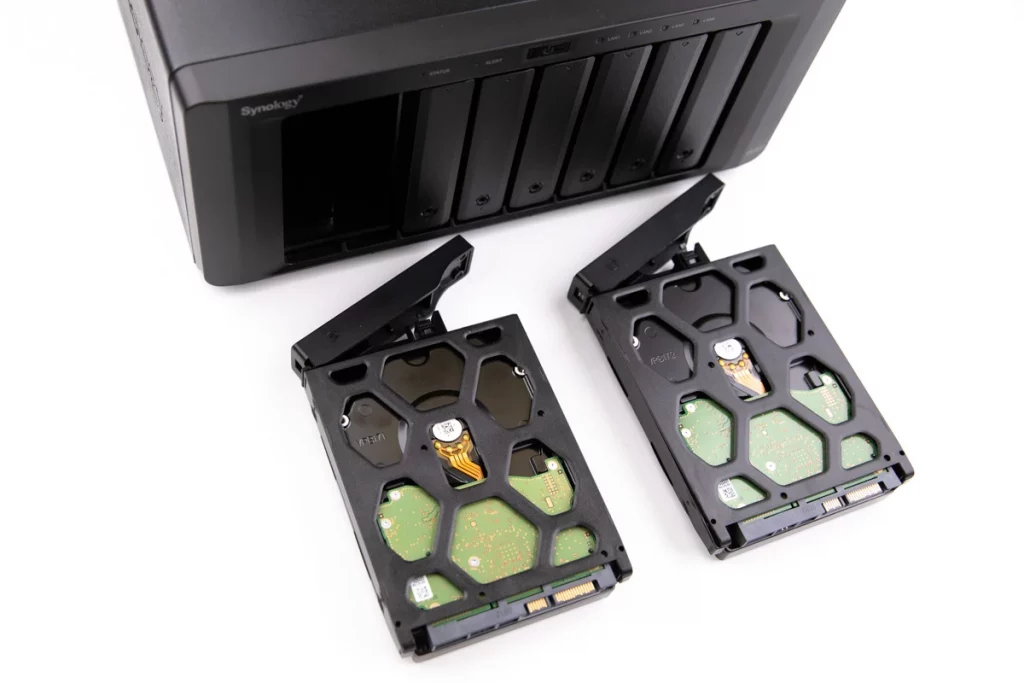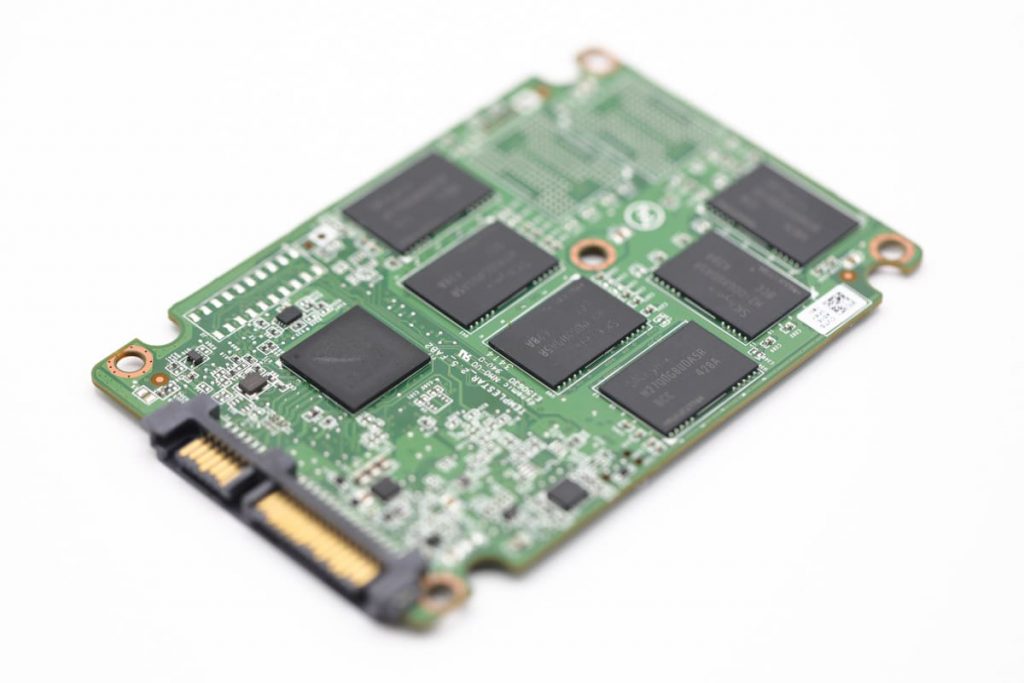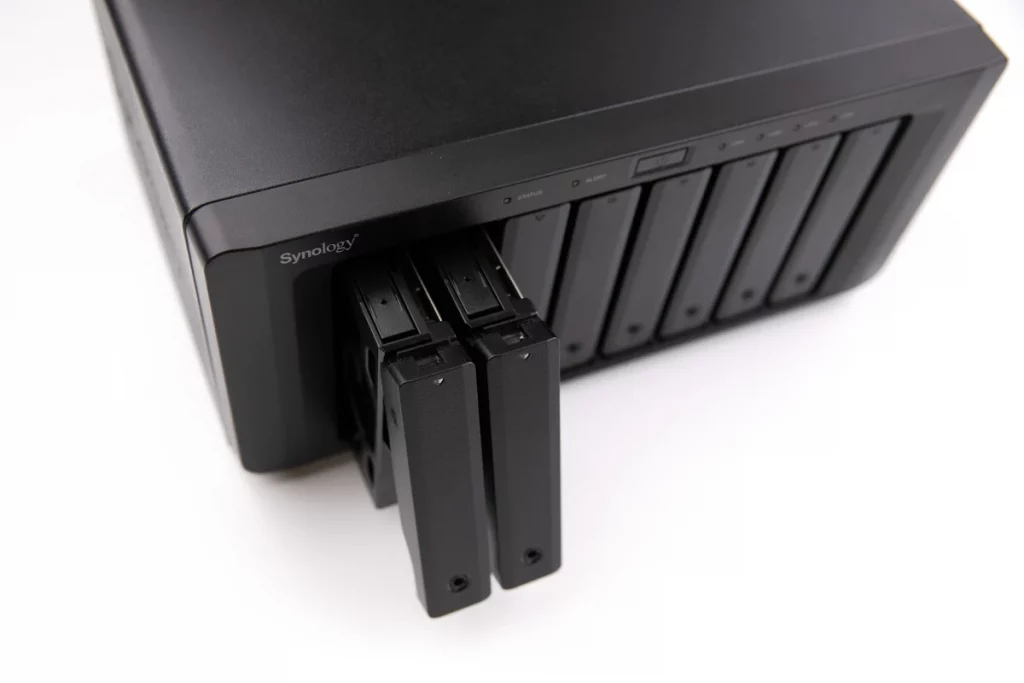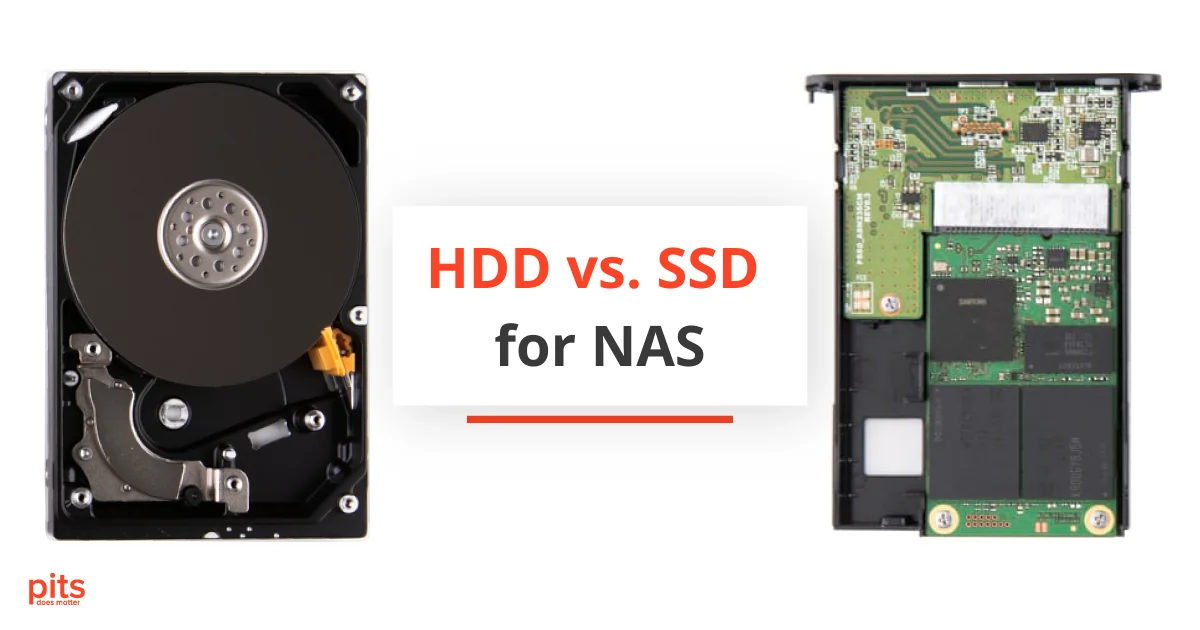NAS SSD vs HDD remains a topic of considerable interest among casual users and tech enthusiasts when choosing the right storage option. Network Attached Storage (NAS) Solid State Drives (SSD) and Hard Disk Drives (HDD) are two distinct storage technologies, each with their own set of advantages and trade-offs. This article aims to comprehensively examine the characteristics of both storage types and assist you in making an informed decision based on your storage requirements, performance needs, and budgetary constraints.
What is NAS HDD
NAS systems traditionally choose Hard Disk Drives (HDD) and have used them for many years. They utilize magnetic storage technology, where data is written onto a spinning disk. One of the main advantages of HDDs is their affordability. They provide a large storage capacity at a relatively low cost, making them a great option for users requiring significant storage but with limited budgets.
Regarding performance, HDDs generally have slower read/write speeds than SSDs. However, this difference in speed is often rare for everyday applications like file sharing or backups.
HDDs are also known for their durability. While they have moving parts that can fail over time, when used properly, an HDD can reliably serve in a NAS system for many years.

One trade-off to consider with HDDs is their higher energy consumption. They require more power than SSDs, which can result in increased energy costs over time. HDDs generate more heat, which may necessitate additional cooling in your NAS system.
Advantages of using HDD in NAS Enclosures
Despite the surge in popularity of SSDs, HDDs continue to hold their own, especially when employed within NAS enclosures. HDDs have several advantages when used in NAS enclosures.
- Cost-Effectiveness: HDDs offer a high storage capacity at a significantly lower cost per gigabyte, making them a more economical choice for extensive storage needs.
- Longevity: HDDs have a long lifespan, especially for storage and backup. Unlike SSDs, their mechanical nature is not affected by frequent data writing.
- Availability: HDDs offer larger capacities than SSDs, making them ideal for extensive data storage requirements. High-capacity HDDs are well-suited for NAS systems for backups, media serving, or archiving purposes.
What is NAS SSD
Solid State Drives (SSD) are an increasingly popular choice for NAS systems, offering a variety of advantages over traditional HDDs. Unlike HDDs, SSDs operate without moving parts, utilizing flash memory to store data. This consequences in much faster read/write speeds, providing a performance boost that is particularly noticeable in applications that demand high-speed data access, such as video editing or large database operations.

However, SSDs come with their own set of trade-offs. They are more expensive than HDDs on a cost-per-GB basis, making them a pricier option if you require substantial storage space.
Additionally, while SSDs don’t have moving parts that can fail, they have a finite number of write cycles. The SSD’s performance can degrade as data is continually written and erased.
In terms of energy efficiency, SSDs are more efficient than HDDs. They consume less power, which not only reduces energy costs but also generates less heat, thus reducing the cooling requirements of your NAS system.
Benefits of SSD NAS
SSDs also offer a variety of benefits when utilized in NAS enclosures, although they come at a higher cost. Here are five key benefits to consider:
- Performance: SSDs offer significantly faster read/write speeds than HDDs, making them perfect for high-speed data access in real-time video editing and database management applications.
- Energy Efficiency: SSDs use less power than HDDs, lowering energy costs. This also means less heat generation, potentially reducing cooling requirements for your NAS system.
- Durability: SSDs offer increased durability as they are not affected by physical shocks or vibrations, making them a reliable choice for NAS systems in such environments.
- Noise Level: SSDs operate silently, unlike mechanical HDDs, and can generate noise.
- Form Factor: SSDs come in various form factors, including smaller sizes, offering increased flexibility for configuring NAS enclosures.
SSD vs. HDD in NAS Enclosures
When considering NAS HDD vs. SSD, one will find that while HDDs offer cost-effectiveness and larger capacities, SSDs provide superior performance and improved energy efficiency. The choice is dependent on specific storage needs and budget constraints.
Performance
Solid-state drives (SSDs) generally offer faster read and write speeds than hard disk drives (HDDs), enhancing performance for applications that demand swift data access. Nevertheless, for tasks such as basic data backups or media serving, where speed is not a critical factor, the disparity in performance may be less noticeable.
Cost and Capacity
Hard disk drives (HDDs) offer a notable cost-per-GB and maximum capacity advantage, making them appealing for cost-effective, large-scale storage. Conversely, solid-state drives (SSDs) may be preferred if optimal performance precedes budget considerations.
Longevity and Durability
Although HDDs are often perceived as more durable due to their longer lifespan, SSDs are less prone to physical damage because they do not have moving parts. However, due to their finite write cycles, SSDs have a limited lifespan in high-write environments.
Power Consumption
Solid-state drives (SSDs) require less power and generate less heat than hard disk drives (HDDs), potentially lowering power costs and minimizing the need for cooling in the NAS system.

Noise Level
Solid-state drives (SSDs) operate silently, unlike hard disk drives (HDDs), which may generate noise during use. Considering if your NAS system is located in a noise-sensitive environment becomes crucial.
In conclusion, the choice between SSD vs HDD NAS enclosures depends on individual requirements and circumstances. SSDs offer speed and efficiency, while HDDs provide cost-effective, high-capacity storage. Striking a balance between these considerations will aid in making an informed decision for your SSD vs HDD NAS system.
Whether you utilize HDDs or SSDs in your NAS enclosures, the possibility of data loss still exists due to various factors like hardware failure, accidental deletion, or software corruption. In such scenarios, PITS Global Data Recovery Services can serve as your reliable solution for NAS data recovery. PITS Global Data Recovery Services is widely recognized for its advanced technology and highly skilled team of data recovery experts.
If you are in such a situation, please get in touch with PITS Global Data Recovery Services. Our team of experts is always available to provide thorough data recovery solutions for various storage devices, including NAS systems. Contact us today to discover more about our services and how we can help you protect your valuable data.
Frequently Asked Questions
Are SSDs reliable in NAS?
When used as intended and under the right operating conditions, SSDs are dependable in NAS enclosures. Solid-state drives (SSDs) have a limited number of write cycles. However, using them appropriately and regularly backing up data can extend their lifespan.
What are the drawbacks of SSDs?
Although SSDs provide fast data access and energy efficiency, they tend to be more expensive per gigabyte than HDDs, making them less cost-effective for extensive storage.
What is the difference between NAS HDD and normal HDD?
NAS systems utilize NAS hard drives to write high-performance data. They have specialized features like error recovery controls and vibration resistance. In contrast, regular hard drives are for general computing. They may offer different efficiency or reliability in a NAS setting due to their lack of specialized features and lower tolerance for continuous operation.
Are NAS hard drives slower?
NAS hard drives may not be inherently slower, but their performance might not be on par with standard hard drives in non-NAS settings. NAS drives are designed to perform continuous, high-performance data writing operations.
